Conversations with smart people about stuff that affects our world, and how we affect it
In the first of four podcasts on sustainability at Appalachian State University, Drs. Shea Tuberty, Todd Cherry and Dinesh Paudel, each engaged in research and teaching around economics, equity or environmental issues, share opinions on what’s hopeful—and what’s not—for our university, the Boone community, our state and our world.
In the first of four podcasts on sustainability at Appalachian State University, Drs. Shea Tuberty, Todd Cherry and Dinesh Paudel, each engaged in research and teaching around economics, equity or environmental issues, share opinions on what’s hopeful—and what’s not—for our university, the Boone community, our state and our world.
Transcript
Megan Hayes: Appalachian State University has a long held commitment to sustainability. We are a place that has, since our founding in 1899, been dedicated to improving education and therefore quality of life in our region. Nearly 120 years later, we continue to build on this legacy with the mission to improve the environmental, economic and social equity of our community, region and world. We call this a mission of sustainability and we take a holistic three-branched approach to the concept of sustainability. This means that as an institution made up of individuals we ask ourselves to consider, as a community of students, faculty, staff and citizens of our region, state, nation and world, we ask ourselves to consider whether our actions are sustainable economically, environmentally and equitably in relationship to our planets co-inhabitants. But, what does this mean, really? Sustainability has so many meanings and these meanings are contextual, they’re multi-faceted, and they’re evolving.
Recently, we sat down with three faculty experts to discuss what sustainability means here at Appalachian State University and to help reveal how our institutional commitment to sustainability reveals itself in our research, our creativity, our innovation and our practice. The discussion was rich, multi-faceted and passionate and it opened the door for further conversations about sustainability both here in the podcast studio and, hopefully, if we‘ve done our jobs right, in offices, over meals, during workouts and at meetings and in conferences across our campus and beyond. Our panel was Dr. Dinesh Paudel, an assistant professor in Sustainable Development whose research and teaching interests include climate change, identity politics, political economics and subaltern social movements.
Dr. Shea Tuberty is an associate professor in the Department of Biology whose research interest is in ecological biology with a focus on water quality issues. Dr. Tuberty is also co-chair of the university sustainability council.
And, Dr. Todd Cherry is a professor in the Department of Economics whose research and teaching interests include environmental and natural resource economics, regional economics and public economics. Dr. Cherry is also the director of the Center of Economic Research and Policy Analysis at Appalachian and a senior research fellow at the Center for International Climate and Environmental Research in Oslo, Norway.
We are presenting their conversation in a four-part series, which you can listen to in series or out of sequence as their discussion covered many different topics.
MH: I’d like to start with a baseline question. Dr. Tuberty, in one of your bios I was reading it suggested that if I pulled aside 10 people, walking across campus, and asked them the question: “What is sustainability?” I’d get more than 10 different answers. My guess is I’d also get a lot of answers related to very visible, tangible aspects of environmental conservation like recycling, reducing pollutants, turning off lights, things that seem very natural that we can grab onto. I’m going to do that here, utilizing your research specialty areas, your daily conversations with your colleagues and across the world, what and how you teach in the classroom, how would you answer that question what is sustainability?
Dr. Shea Tuberty: I think that I moved to Boone because of water quality and all my research relates to water quality and quantity, but mostly quality. For example, this week I was fly-fishing with some colleagues and just amazed at the clarity of water immediately after a storm. Having lived in places like New Orleans and the Midwest and even central Tennessee, immediately after it rains you can count on the water being so muddy that you can’t see anything in it. Fishing is usually out of the question. For me it’s about water quality and clarity and how that relates to human development and land use changes around places like the southern Appalachians where we usually enjoy super-clear water, ubiquitous water—people take it for granted here. Not everyone, but a lot of people do and how those changes effect the use of water and how do we maintain water for not just for human use, which is the top of most people’s minds, but also supporting ecological roles for fish and invertebrates that live in streams and salamanders and what not. For me sustainability is about water. As you mentioned I’ve talked about how sustainability, the term, can be so specifically defined that people think it’s useless as a word. But it is something that wraps the entire community at AppState together and allows everyone to buy in, in any way they think is important. Sustainability is a perfect word. I think it’s a strong point of the word sustainability and the fact the university has used this to create an identity around is perfect, I think it’s ideal.
MH: Dr. Paudel?
Dr. Dinesh Paudel: Thank you, this is really a very important concept. I think I’ll be a little conceptual in this. Rather than finding a proper definition or one universal definition, I think we should think about the range of practices that allows us to think about ecology, about equity, about justice, about our environment, about our planet as a whole. I think that’s very important. Rather than thinking about what is a proper and adequate definition, we should think about how this concept came about in the first place. What was the history that it wanted to achieve? Secondly, what are the different possibilities it can bring in, what kind of possible changes it can bring in for us as a society, ecology and as a planet as a whole? For example, sustainability has huge potential to really transform the way ecology is now understood—ecological integrity, ecological systems—and it’s proper management, not in a human controlled way, but to understand it as a system independent of all other things. Secondly, how this concept could actually bring social justice, equality and collective well-being around the world. I think these are very important concepts and any practices, range of practices that brings these major changes into ecological integrity and social justice and equity. I think that’s what sustainability is. Sustainability came in the '70s to stop those destructive practices through our economic and other social systems. Over time though it is almost corrupted now. It is now used as another way to produce the very system that actually destroyed it in the first place. Our job is to radically depart from the way we understand sustainability now. Though we want to use it now to really make a sense of it, therefore I think it has a huge potential. Those practices they bring in environmental and social justice. I think that’s what it is for me.
MH: Dr. Cherry?
Dr. Todd Cherry: One of the underlying issues of these different perspectives of sustainability is what we call substitutability. Over time, things change; new resources are being developed or created and then new processes that allow us to use our resources differently. There is some shifting going on between resources and how people view this issue of substitutability. That’s really what is at the center of a lot of these different perspectives. On one side of the spectrum you have people that want to endow the next generation with exactly the same amount of resources and exact conditions that we have today, and that’s more of a strict sustainability. On the other side of the spectrum, you have people that think anything can be replaced so they will be happy eating their dinner from a machine like George Jetson. Those two are extremes and we are somewhere in the middle. I think one of the issues is how we as a society control those dynamics and what is important. What is irreplaceable and what do we want to preserve and conserve, and what are our options for improving things? I think that’s the real tension.
ST: That was an interesting definition or a new concept that I wasn’t aware of—the substitutability. That’s an interesting way of looking at it. This is the fun part about sustainability… talk to an artist about what sustainable art is. I’ve had folks in the ecology department start laughing, “Sustainable art? What the hell is that?” When they tell you what it is, it makes perfect sense. They have a completely different way of looking at the world. It’s every bit as valid as mine. It’s just different. That same person, she and I were trying to come up with a definition for the website for the Office of Sustainability and we kept saying the same thing over and over again, but I don’t think either one of us understood what we were saying. I think it’s really good.
MH: I think that’s why we are grasping for some topics that people tend to gravitate toward when they’re thinking about sustainability. One of them we thought might be helpful to frame the conversation around is climate change. This is an issue people have really strong opinions about and I’m sure each of you has strong opinions about climate change. Let me ask you this: how can a discussion about climate change be framed within the context of all three E’s: equity, economics, and environmentalism. Can we go beyond this pretty primarily environmental discussion that we are having right now as a nation and relate this to economics and social equity, Dr. Cherry?
TC: Yes, I think climate change is a perfect example of how those three things fit together. In particular, climate change is a result of the failures of our economic and social institutions and our failure to manage our resources effectively. The origin of the problem is economics and social institutions and the solutions are going to have to come from those origins. Finding those solutions is really difficult because of the equity issues, because the countries that contribute the most to the problem are the ones who aren’t going to be affected as much as the others. There are these inequities that make negotiations at an international level very difficult, and I think that overcoming some of those issues and equity issues and how to approach the problem has been a real challenge.
MH: Dr. Paudel?
DP: Thanks, I agree totally with that. I have a problem with the three E framework because they are contradictory to each other. For example economic growth, ecology and equity do not really operate together. Economic growth requires what? You have to extract environmental resources and also at the same time exploit or mobilize large scale populations and try to pay as little as possible to make more profit. That’s how you grow the economy, right? You cannot achieve environmental (sustainability) and equity at the same time while putting economic growth at the center. Largely understood within sustainability, these three E’s are driven mainly by economic growth. Economic growth at the same time also not drastically destroying environment and social justice and equity. Let’s also care about that, but the main driving thing is economic growth. I think we must really think about these three E’s if we really want to achieve sustainability and with the focus of ecology and equity. Climate change for example. Global warming, we know it is because of what? Carbon dioxide, right? We always understand this as a technical kind of problem rather than a social, political problem, and I totally agree with him (Dr. Cherry) that it is totally an institutional, economic problem. Carbon is already there on earth, it’s what we do. Our economic system puts that carbon up, extracts it and produces it into the air as carbon dioxide. That’s actual science out there, that’s how that happens—that is because of our very system of producing goods and consuming them—our way of living, consumerism and the system of economics that we have. I think that’s the real issue. Without dealing with this very fundamental issue, we will not even be able to think about sustainability within this global-warming framework. I think it is fundamental to think through those economic institutions and our practices, rather than actual environmental problem.
MH: Dr. Cherry, can you talk about that for just a second? Can there be economic growth, without the devastating….
TC: Well, I think you have to think of economic growth more broadly. What is economic growth? Is it more consumption? It doesn’t have to be more consumption. Economic growth can come in different ways; economic growth is essentially improvements in well-being. That could be more leisure time. It’s not necessarily the system—I mean the system and preferences are endogenous to the system, I don’t want to dismiss that reality—but the system generates progress. What do we do with that progress as humans? What do we do when we become more productive? What do we do with that extra time? Do we work more? Like Smartphones? Do we use the technology and those gains in productivity for more time at home or do we spend that time at work doing more things? In part, it’s our decision on what to do with these gains in productivity and efficiencies. How do you define economic growth kind of answers that question, also the market system; climate change is a product because the market failed. It’s been called the greatest market failure in history. So the markets work really well when prices fully reflect the cost of things and if prices don’t reflect the true cost then we end up with problems. One thing in the U.S. in particular, we are really interested in low cost, low prices. But there is such a thing when prices are too low. When prices are too low you can get overuse and over consumption and a lack of conservation. In a sense we are freeriding off the planet because we are not paying for what we are using from the planet.
DP: You’ve been wonderful. Thank you for clarifying that. That would be wonderful, if we defined economic growth as actually social well-being. Unfortunately that is not how it is under this very competitive market-led, very industrial, capitalist system that we have at present. We understand economic growth in dollar terms, right? OK, we have $50 billion that is the surplus profit that we produce. There are actual extractions of profit that are considered as how much we produced rather than how much well-being we generated for society. We never measure that. One country like Bhutan, if you’ve heard of that, they calculate their national growth in happiness, gross national happiness. Probably that will help us to rethink how we conceptualize economic growth. Yes, I agree if we understand economic growth from a well-being perspective that would be wonderful, but the way we practice right now, we are mostly thinking about profit and how much surplus profit we made. Yea, it is a good conversation to have under sustainability.
TC: Well, GDP, which was created by an economist a long time ago. Right from the start they warned that this is not a measure of well-being and income is not a measure of well-being. It’s a problem of metrics. We focus on metrics. You can see it in the education system. You say we should be increasing our graduation rate. We can do that by making everything a lot easier, but is that really what we want to do? There is an emphasis on all these metrics that can lead people in directions and forget the other things it’s not capturing.
ST: I’d like to interject something a little different. Listening to these two talk about economic growth and they seem to have some different views on that, but we talk about consumption—one of the changes in horizon is reducing our carbon-based energy sources and increasing our solar-based energy sources, which will change the playing field to some extent, but we still have water use and food productivity that’s going to be ever increasing as our population goes up. As an ecologist, all of us take population ecology as undergraduates, and one of the things you learn as a biologist is that you can’t have sustainable population growth forever when you’re increasing by billions and billions per decade. You’re going to outlive your sources of food and energy and water. By using technology, humans have been able to get around some of the laws of ecology. I think what we are seeing right now with climate change is actually some of the drastic effects of not thinking long term. I’d like to draw the focus to one of those resources, again water. When you talk about the three E’s and use climate change as a focal point, I think it’s a great one, as the other two have alluded to already. If you look at water use in the western part of the United States, so let’s bring it back home to the North America. You can talk to folks in California or in Colorado. Colorado folks are angry at California cause their actually suing them for water rights. They’re not even neighbors, we are talking about hundreds of miles away. Some state is saying you can’t use your own water in your back yard because they’ve already paid for it or have an agreement to use it. Other countries in Africa and some of the other continents are already realizing reduced water availability. Don’t even worry about water quality. They just don’t have any. The lines between this country and that were often drawn by we are sharing this lake or we are sharing this river and even within the southern states, use South Carolina and Georgia as an example. They keep trying to inround the other state by putting water intake further upstream. The claim holders of water quality and water quantity are already realizing the effects of climate change. My own family questions me during family reunions. Do you believe in this whole rigmarole about climate change? And unfortunately you can divide the nation into who understands and is already trying to fix climate change, and those who deny it even exists. Right down party lines. Only in the last couple years the government is acknowledging, at least the agencies within it, are acknowledging that climate change exists and now we have to fix it. That’s been a big change for the better and I think along with changes in energy production we can start seeing major changes within our economies at least within our governments and how things are being perceived. With the equity issues, again I think Todd put it on the table already. The countries that are going to be most affected are often the least responsible. The equity comes in with how do we deal with these countries that are going to lose square footage or square miles of properties and sea levels rise? There are already a couple island communities; they’re looking for a place to go tomorrow. This is not something that we need to worry about 100 years from now, it’s happening now.
Other equity issues that I deal with are: where do toxins go? As an eco-toxicologist who deals with water quality toxins, a great example is coal ash. When the 2008 coal ash spill happened over in Tennessee, the community that received that coal ash as it was removed from the basin it was stored in that had ruptured over to someplace else for long-term storage was like the poorest county in the state of Alabama. Immediately that community, the person that owned the landfill made some money on it, but the rest of the community was really worried about their health and the water quality of the leachate coming out of the landfill, which was immediate. That community doesn’t have social equity and so the fact that they're being dumped upon, literally, with all the toxins that another rich community didn’t want. It goes… the fingers go everywhere as far as the interaction between these three E’s.
MH: The conversation does not end here. It continues with a more in-depth discussion of social justice and how racial equity is key to a sustainable society. That’s next time on SoundAffect.
Hi, SoundAffect listeners. I have just a quick note about these sustainability conversations. We were actually surprised, pleasantly surprised, and in retrospect we really shouldn’t have been surprised but we were that this conversation got so deep so fast. We knew even before we started recording the conversation with Drs. Paudel, Tuberty and Cherry, who we dubbed the Three Wise Men, that we needed to hear from wise women as well. Women and men from other disciplines like art and education and government and justice studies and from people who help run our campus as well as teach or students, and pretty quickly we understood this was becoming its own program. So, we decided to launch a new podcast series hosted by a sustainability expert, someone who is so steeped in the concept that it literally informs his daily life, what he eats, drives, interacts with others and why his lights are never turned on in his office. That person is Dr. Lee Ball and he leads the Office of Sustainability here at Appalachian State University. His new podcast is called Find Your Sustain Ability. Find it under podcasts at appalachianmagazine.org or on iTunes. Just search for Appalachian State under podcasts. Hope you enjoy it and Lee as much as we do.
In the first of four podcasts on sustainability at Appalachian State University, Drs. Shea Tuberty, Todd Cherry and Dinesh Paudel, each engaged in research and teaching around economics, equity or environmental issues, share opinions on what’s hopeful—and what’s not—for our university, the Boone community, our state and our world.
What do you think?
Share your feedback on this story.
An Appalachian State University faculty expert roundtable discussion
An Appalachian State University faculty expert roundtable discussion
An Appalachian State University faculty expert roundtable discussion
Conversations with smart people about stuff that affects our world, and how we affect it
About Appalachian State University
As a premier public institution, Appalachian State University prepares students to lead purposeful lives. App State is one of 17 campuses in the University of North Carolina System, with a national reputation for innovative teaching and opening access to a high-quality, cost-effective education. The university enrolls more than 21,000 students, has a low student-to-faculty ratio and offers more than 150 undergraduate and 80 graduate majors at its Boone and Hickory campuses and through App State Online. Learn more at https://www.appstate.edu.

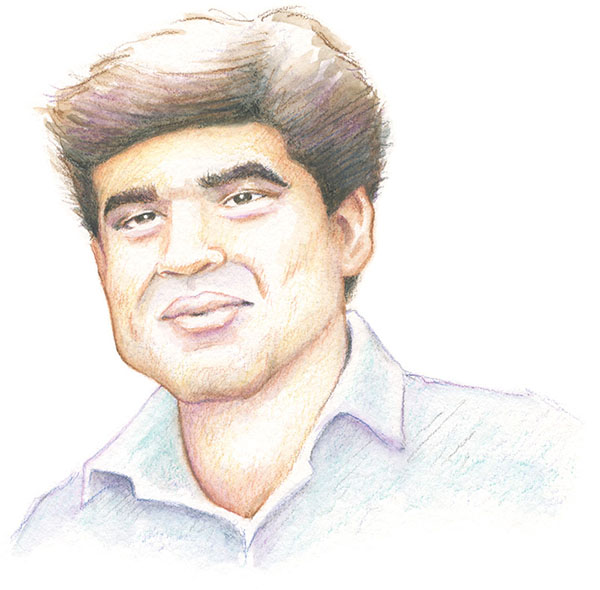
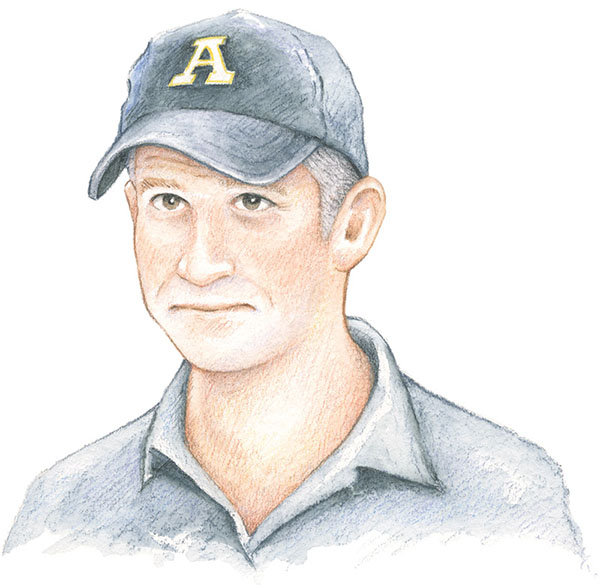
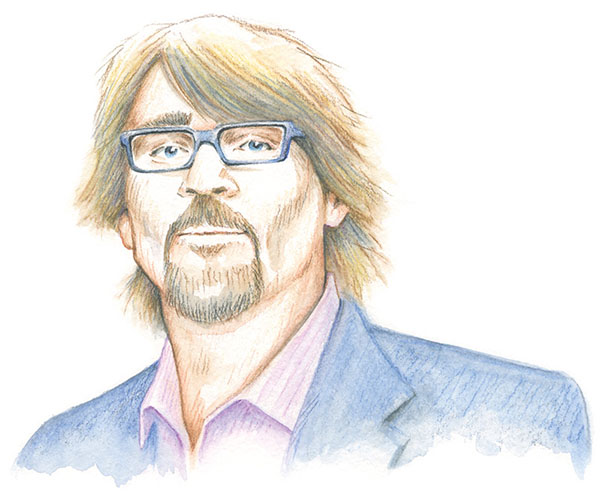
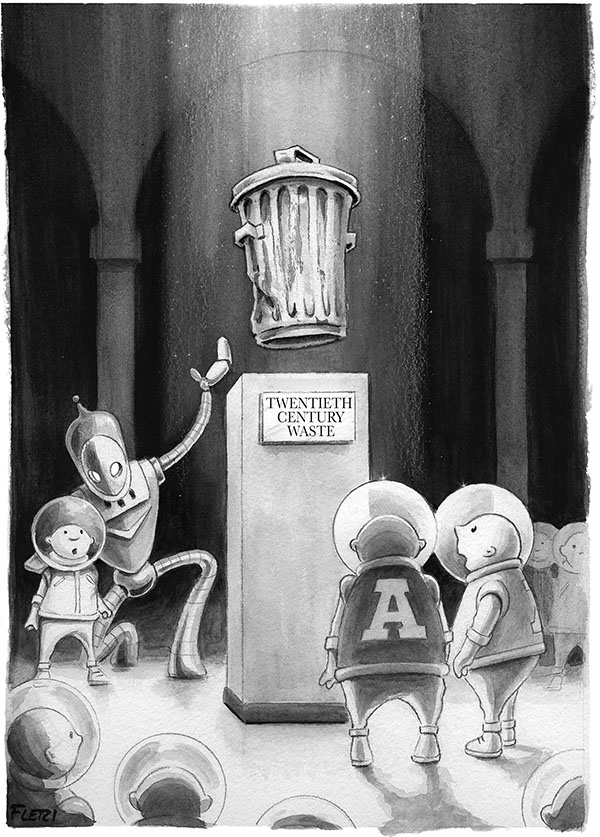
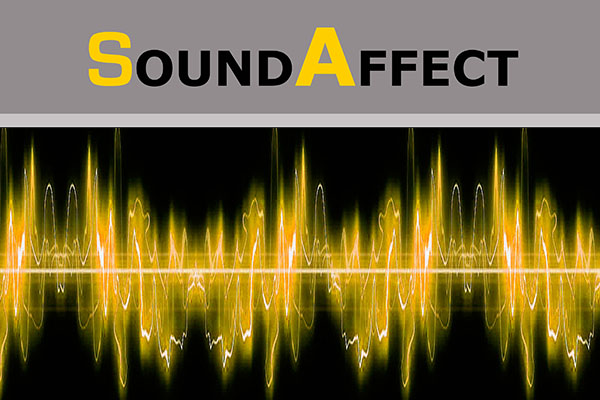






![How NCInnovation Is Rethinking Economic Development in North Carolina [faculty featured]](/_images/_posts/2026/02/rethinking-economic-development-600x400.jpg)







